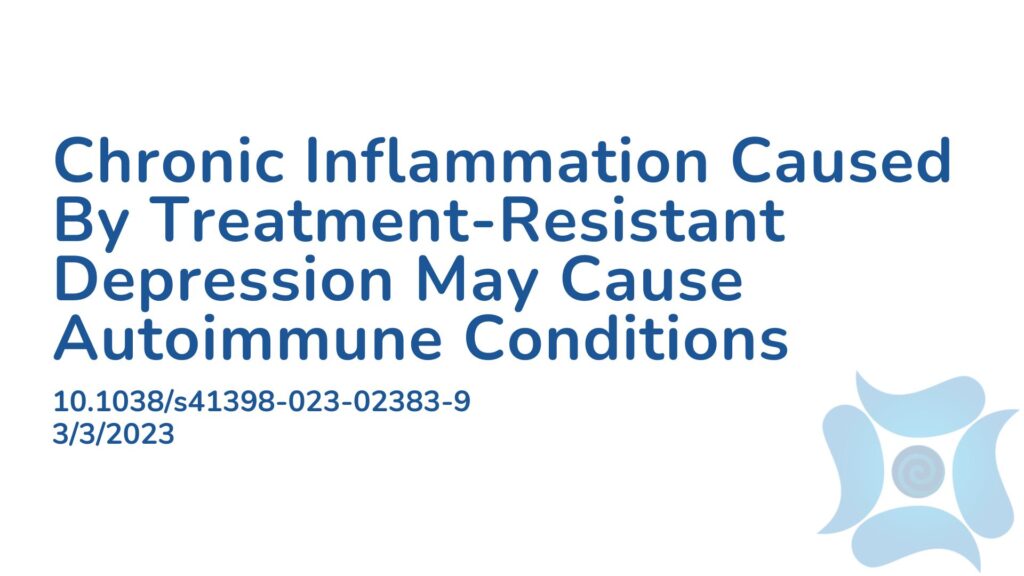Summary:
This cohort study analysed whether treatment-resistant depression (TRD), due to its role in chronic inflammation, could be a risk factor for autoimmune diseases and whether there are any sex-specific differences in outcomes. The researchers included 24,576 participants with depression who do not have an autoimmune condition and followed them for 4-6 years to assess whether they were later diagnosed with TRD or an autoimmune disease. Over the study period, over 4000 participants without a history of autoimmune disease (17.7%) developed TRD. Analysis of the results then showed a statistically significant correlation between TRD status and autoimmune diseases and that risk was higher among men compared to women. In conclusion, the findings provide evidence that there is an increased risk of autoimmune diseases in patients with TRD due to chronic inflammation caused by depression. The authors suggested that controlling inflammation in TRD may play a role in preventing the diagnosis of autoimmune conditions.
Abstract:
Recent literature indicates that patients with depression had increased immune activation. We hypothesised that treatment-resistant depression (TRD), an indicator of non-responsive depression with long-term dysregulated inflammation, could be an independent risk factor for subsequent autoimmune diseases. We performed a cohort study and a nested case-control study to examine the association between TRD and risk of autoimmune diseases, and to explore potential sex-specific difference. Using electronic medical records in Hong Kong, we identified 24,576 patients with incident depression between 2014 and 2016 without autoimmune history and followed up from diagnosis to death or December 2020 to identify TRD status and autoimmune incidence. TRD was defined as having at least two antidepressant regimens and the third regimen to confirm previous treatment failures. Based on age, sex and year of depression, we matched TRD patients 1:4 to the non-TRD in the cohort analysis using nearest-neighbour matching, and matched cases and controls 1:10 using incidence density sampling in the nested case-control analysis. We conducted survival analyses and conditional logistic regression respectively for risk estimation, adjusting for medical history. Across the study period, 4349 patients without autoimmune history (17.7%) developed TRD. With 71,163 person-years of follow-up, the cumulative incidence of 22 types of autoimmune diseases among the TRD patients was generally higher than the non-TRD (21.5 vs. 14.4 per 10,000 person-years). Cox model suggested a non-significant association (HR:1.48, 95% CI: 0.99–2.24, p = 0.059), whereas conditional logistic model showed a significant association (OR: 1.67, 95% CI: 1.10–2.53, p = 0.017) between TRD status and autoimmune diseases. Subgroup analysis showed that the association was significant in organ-specific diseases but not in systemic diseases. Risk magnitudes were generally higher among men compared to women. In conclusion, our findings provide evidence for an increased risk of autoimmune diseases in patients with TRD. Controlling chronic inflammation in hard-to-treat depression might play a role in preventing subsequent autoimmunity.
Article Publication Date: 3/3/2023
DOI: 10.1038/s41398-023-02383-9



